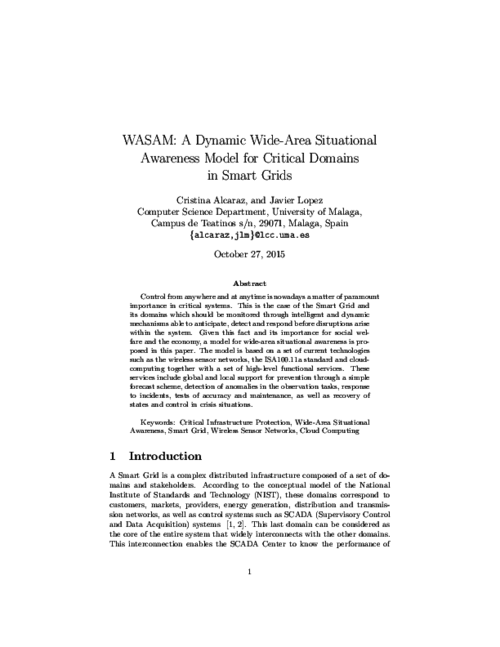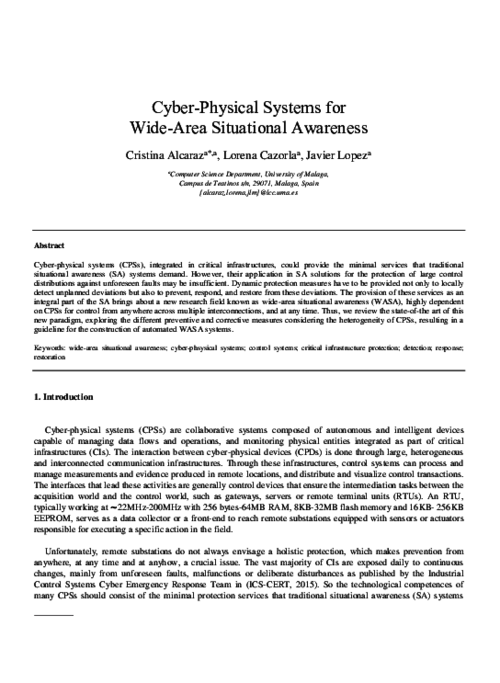 ]
] Future Generation Computer Systems, vol. 30, Elsevier, pp. 146-154, 2014. DOI
Abstract
Control from anywhere and at anytime is nowadays a matter of paramount importance in critical systems. This is the case of the Smart Grid and its domains which should be monitored through intelligent and dynamic mechanisms able to anticipate, detect and respond before disruptions arise within the system. Given this fact and its importance for social welfare and the economy, a model for wide-area situational awareness is proposed in this paper. The model is based on a set of current technologies such as the wireless sensor networks, the ISA100.11a standard and cloud-computing together with a set of high-level functional services. These services include global and local support for prevention through a simple forecast scheme, detection of anomalies in the observation tasks, response to incidents, tests of accuracy and maintenance, as well as recovery of states and control in crisis situations.

Cyber-Physical Systems: Foundations, Principles and Applications, no. Intelligent Data-Centric Systems, Academic Press, pp. 305 - 317, 2017. DOI
Abstract
Abstract Cyber-physical systems (CPSs), integrated in critical infrastructures, could provide the minimal services that traditional situational awareness (SA) systems demand. However, their application in SA solutions for the protection of large control distributions against unforeseen faults may be insufficient. Dynamic protection measures have to be provided not only to locally detect unplanned deviations but also to prevent, respond, and restore from these deviations. The provision of these services as an integral part of the SA brings about a new research field known as wide-area situational awareness (WASA), highly dependent on CPSs for control from anywhere across multiple interconnections, and at any time. Thus, we review the state-of-the art of this new paradigm, exploring the different preventive and corrective measures considering the heterogeneity of CPSs, resulting in a guideline for the construction of automated WASA systems.
